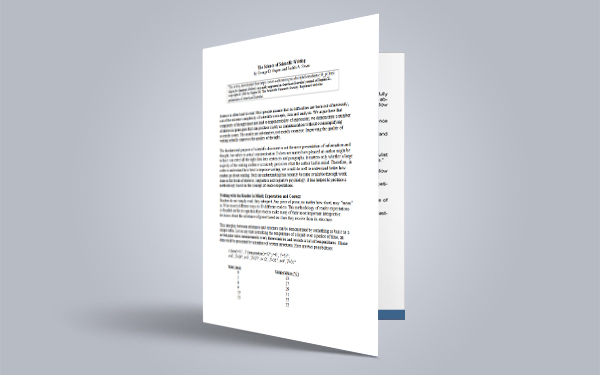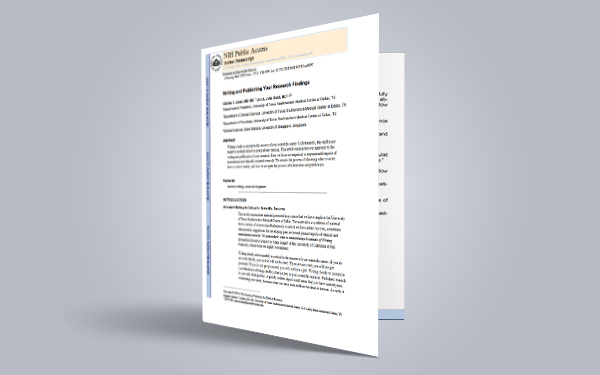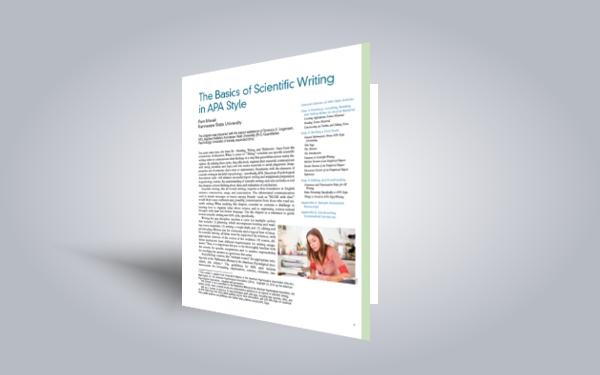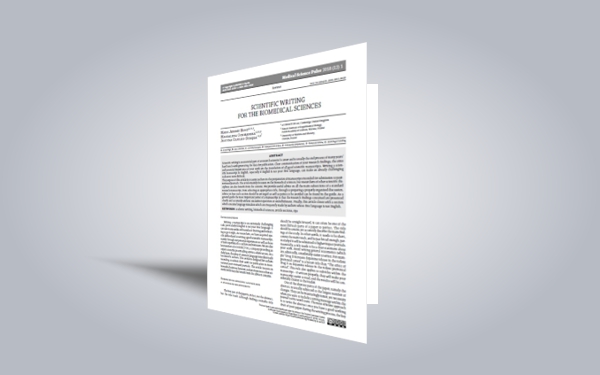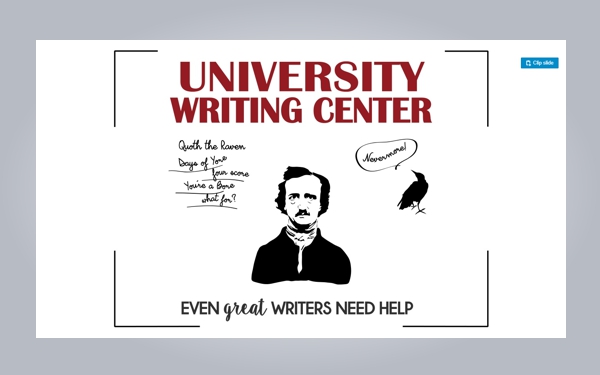Free Guides
To address the needs of our readers we have found and selected the best free guides on academic writing and effective publishing. Here you will find both concise and longer publications, most of them in Polish, and a few ones in English. In our opinion you can never have enough of science and we believe that our materials will not only help you learn something new or structure the already possessed knowledge, so you will be able to publish your works more efficiently and often.
The Science of Scientific Writing
George D. Gopen and Judith A. Swan
The paper was originally published in the American Scientist in 1990.
Authors of the article present ways of improving the quality of scientific activities by simplifying the language, clarifying the message and making sentence structure more logical.
Writing and Publishing Your Research Findings
Charles T. Quinn, A. John Rush. J Investig Med. 2009 June
How to write concisely and precisely? How to entitle your work so as to interest potential recipients and keep the results a secret? How to prepare tables and drawings? Why are so many papers sent to publishing houses declined? Those and many other questions are referred to in this paper. It is a valuable source of information for all researchers.
Scientific Writing Made Easy: A Step-by-Step Guide to Undergraduate Writing in the Biological Sciences
Sheela P. Turbek, Taylor M. Chock, Kyle Donahue, Caroline A. Havrilla, Angela M. Oliverio, Stephanie K. Polutchko, Lauren G. Shoemaker and Lara Vimercati
ECO 101, October 2016
“(..) The guide breaks down the scientific writing process into easily digestible pieces, providing concrete examples that students can refer to when preparing a scientific manuscript or laboratory report. By increasing undergraduate exposure to the scientific writing process, we hope to better prepare undergraduates for graduate school and productive careers in the biological sciences.”
The Basics of Scientific Writing in APA Style
Pam Marek
Kennesaw State University
Publication Manual of the American Psychological Association (6th ed.).
Washington, DC, US: American Psychological Association (2010)
Some of you may be familiar with the APA citation system for scientific publications. Since 1980s, this method is used in manuscripts discussing social sciences, psychology and education. It was developed by the American Psychological Association, hence the abbreviation. The system refers to various rules on formatting different elements of the texts (e.g. references, lists of resources, statistics, table formatting, use of italics, spelling). This article, which is a part of the APA handbook (available in our Books section), presents the basic rules of writing in line with this method and provides detailed explanations.
English language and research: the most common traps
Weronika Wasilewski
Medical Science Pulse 2017; 11 (1): 24-28
This paper presents a list of these common grammar mistakes that English learners make. It also includes tips on how to improve one?s grammar and what to pay attention to.
Scientific writing for the biomedical sciences
Mark Jeremy Hunt , Magdalena Ochmańska, Justyna Cilulko-Dołęga
Medical Science Pulse 2018; 12 (1): 29-33
The purpose of this article, by the members of our Ecorrector team, is to assist authors in the preparation of manuscripts intended for submission to peer reviewed journals. The article mainly focusses on the biomedical sciences, but researchers of other scientific disciplines can also benefit from the content. We provide useful advice on all the main subsections of a standard research manuscript, from selecting an appropriate title, through to preparing a properly organized discussion. Finally, this article closes with a section which contains language mistakes which are frequently made by authors whose first language is not English.
Scientific Writing
Texas A&M University Writing Center
Here?s something for our visual learners! University of Texas has a rich database of materials for scientific writing addressed to both young and more experienced researchers. Their saying is that “even great writers need help.? The presentation leads us step by step through the process of writing a scientific paper, drawing attention to key issues and providing practical tips. If you don?t have much time but want to learn something new that presents in a digestible way how to improve your workshop, start with this presentation!
